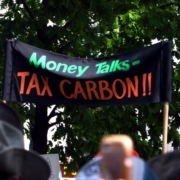What The Economist Gets Wrong About ESG

The Economist published an eight-part series last month on ESG investing. Introduced in 2004, the ESG framework (environment, social, and governance) allows investors to evaluate companies based on factors that go beyond their financial returns.
Well researched and smartly written, this series offers a clear and convincing critique of the current ESG framework, which now affects how more than $35 trillion in assets are invested.
The Economist rightly points out, “measurement of ESG data needs a big overhaul,” in part because “there is little clarity about what ESG raters intend to measure and what their methodologies are.” The magazine accurately observes that marketers of ESG investments, who claim that they inevitably outperform the overall market, are peddling “a myth,” as “very often there are tradeoffs.”
The Economist unfortunately leaps to the conclusion of jettisoning social concerns.
Rather than proposing improved definitions and metrics based on better data, The Economist argues that “it is better to focus simply on the E,” for environmentally sound investments. Further, the editors suggest that the E should not stand for a range of environmental factors, “but for emissions alone.” The risk posed by climate change does indeed demand much greater and more urgent attention. But The Economist offers the wrong prescription for ESG, one that is too narrow and shortsighted, and fails to address other important societal issues, such as the chronic mistreatment of workers in global supply chains.
The ESG framework was first proposed by the United Nations Secretary General and U.N. Global Compact in collaboration with the Swiss government. It was endorsed by 23 financial institutions, including Goldman Sachs, Credit Suisse, Morgan Stanley, and HSBC, along with the International Finance Corporation and World Bank. What this group proposed in 2004 was a theoretical approach aimed at evaluating companies based on their efforts to support social and environmental goals that go beyond simply maximizing financial returns.
The original ESG report assumed that “in a more globalized, interconnected, and competitive world, the way that environmental, social, and corporate governance issues are managed is part of companies’ overall management quality needed to compete successfully.” In the last 18 years, the ESG movement has grown exponentially and now represents more than a third of all assets under management.
In large part because of this explosive growth, the ESG framework has come under the microscope, and is now taking criticism from all sides. Among conservatives, there is a growing chorus of critics who see ESG frameworks as an element of what they deride as “woke capitalism.” In May, former Vice President Mike Pence, writing in the Wall Street Journal, described ESG as a shift in the investment world “entirely manufactured by a handful of very large and powerful Wall Street financiers promoting left-wing environmental, social, and governance goals and ignoring the interests of businesses and their employees.” Others, like Senators Ted Cruz (R-Texas) and Josh Hawley (R-Missouri), have piled on, seeking to turn ESG investing into the next political wedge issue.
Last month, Fox News host Tucker Carlson went so far as to blame Sri Lanka’s current political crisis on the ESG movement. He argued that the social and political unrest in Sri Lanka is rooted in recent limits on the use of chemical fertilizers, which have reduced agricultural production and caused serious economic distress. He speculated that this change in farm policy was part of the government’s effort to secure high marks in ESG scorecards. In fact, Sri Lanka scores high on the index cited simply because it is an emissions index, and poor states emit less carbon.
Liberal critics argue that most ESG funds, especially those marketed by large investment firms, have at least two flaws. First, many of these funds are little different from more ordinary investment offerings and mislead clients who assume they are using their money to do good in the world. Second, ESG funds generally steer investor funds toward corporations that are reducing their own financial risks and those of shareholders, rather than reducing risks to people broadly and to the planet.
A recent article in the Harvard Business Review titled “ESG Investing Isn’t Designed to Save the Planet” concludes that too often, ESG funds are “dedicated to assuring returns for shareholders, not delivering positive planetary impact.” A 2021 Bloomberg article called the “ESG Mirage” echoes this point, concluding: “[ESG] ratings don’t measure a company’s impact on the Earth and society. In fact, they gauge the opposite: the potential impact of the world on the company and its shareholders.”
Subscribe to the Ethical Systems newsletter
After presenting these critiques, The Economist unfortunately leaps to the conclusion that companies should jettison social (as opposed to climate) concerns. The closest it comes to supporting this argument is to note without comment that one asset manager dismisses social issues as “extra-curricular,” and another worries that collecting job data may offend privacy laws. Of course, it’s unsurprising that some asset managers would prefer not to deal with the messy and complex task of assessing social challenges. But they should not be the ones to abort this pursuit if measuring these factors serves the public interest.
Rather than abandoning social and human-rights metrics, investment managers need to give them greater attention. This means more sharply defining the scope of social concerns and focusing on areas where global business models are resulting in human hardship and then gathering better data.
One area that deserves particular attention is the treatment of workers in factories and mines and on farms in the poorest countries. In many instances, addressing the most serious of these hardships to workers will result in added costs to global businesses that directly benefit from their labor. This is a big reason why some money managers are not eager to measure them.
While the main recommendation made by The Economist is to boil down ESG to a single metric—carbon emissions—the magazine’s analysis can also point to a better approach, which some asset managers are already starting to embrace. This better approach is to customize offerings and “make products better tailored to particular investor constituencies.” This would promote the creation of climate funds for investors focused on carbon emissions. But by the same token, it would encourage the creation of social funds for those concerned about vulnerable workers. Individual investors themselves should be the judges of their own priorities.
While climate funds are sure to dominate in a segmented market, those involved in developing social funds would have a better opportunity to define and measure these concerns in more meaningful ways, with better data, and in recognition of the true costs. The Economist’s editors note in a companion editorial, “The more targets there are to hit, the less chance of bulls-eying any of them.” This is an argument for separating the targets, not eliminating most of them to favor just one kind.
Michael Posner is the Jerome Kohlberg professor of ethics and finance at NYU Stern School of Business and director of the Center for Business and Human Rights. Follow him on Twitter @mikehposner.
Reprinted with permission from Forbes.
Lead image: AP Photo / Kin Cheung








